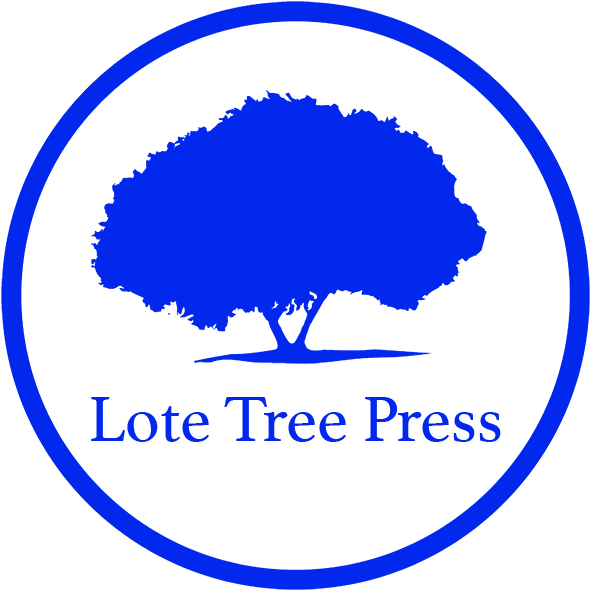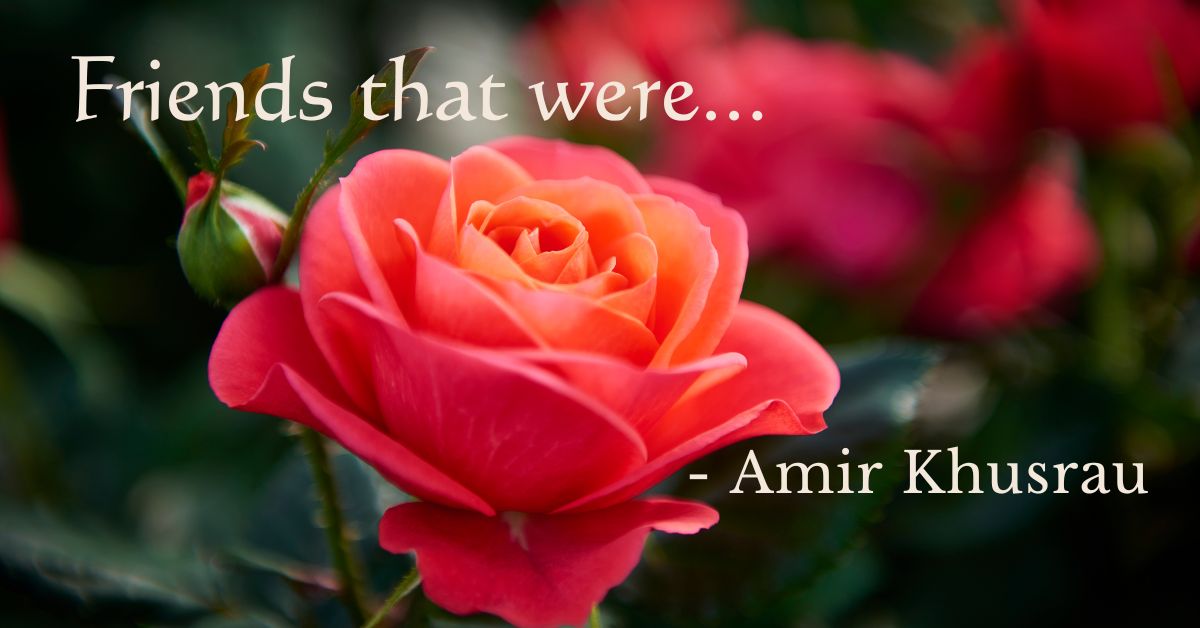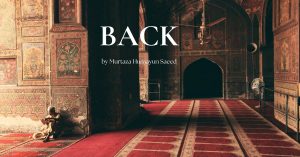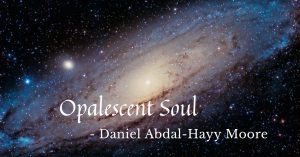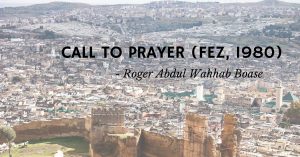Friends that were – I do not know where they are
O Lord, what day was it
that they were divided from us?
If the new spring should come,
asking after those friends
Say, ‘O gentle breeze,
those roses have all turned to weeds!’
O rose, since you have come out of the earth,
Say, how are they – the faces beneath the dust
of those who have passed away?
All those lords who were the crown on the head of creation
Behold – now have become the soil beneath our feet.
This world is bloodwit for many –
the fortune of many at its pinnacle
And those motes of dust
that like everyone were in the air
are now as the sun, set beneath the earth.
Those who were deceived by the enchantments of this world
left behind treasure in their search for alchemy.
The deception of worldly goods
is like that of children’s playthings –
foolish are those overtaken by it.
The treasurers of heaven too are without fortune.
Khusrau, flee! – there is no sincerity
from the people of the world
who are just as treacherous as the world itself is.
– Ghazal 1034
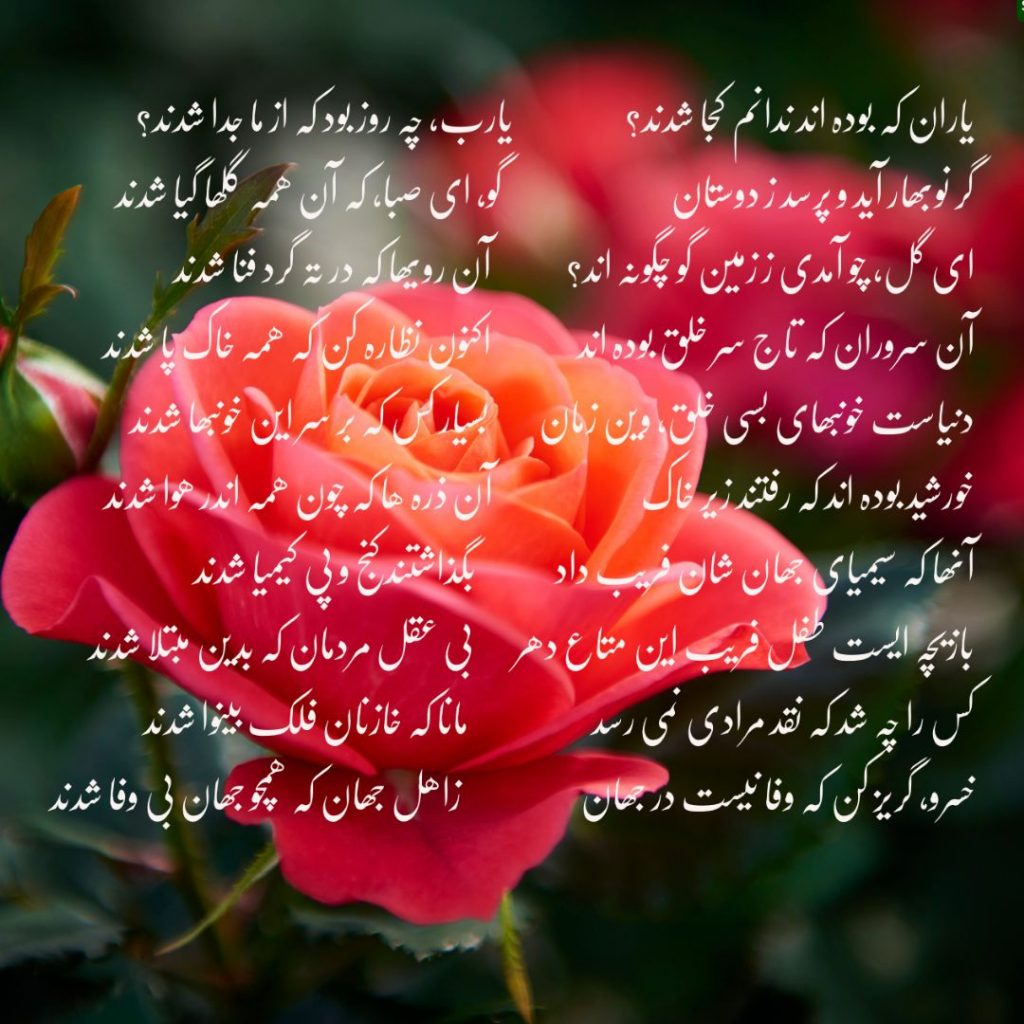
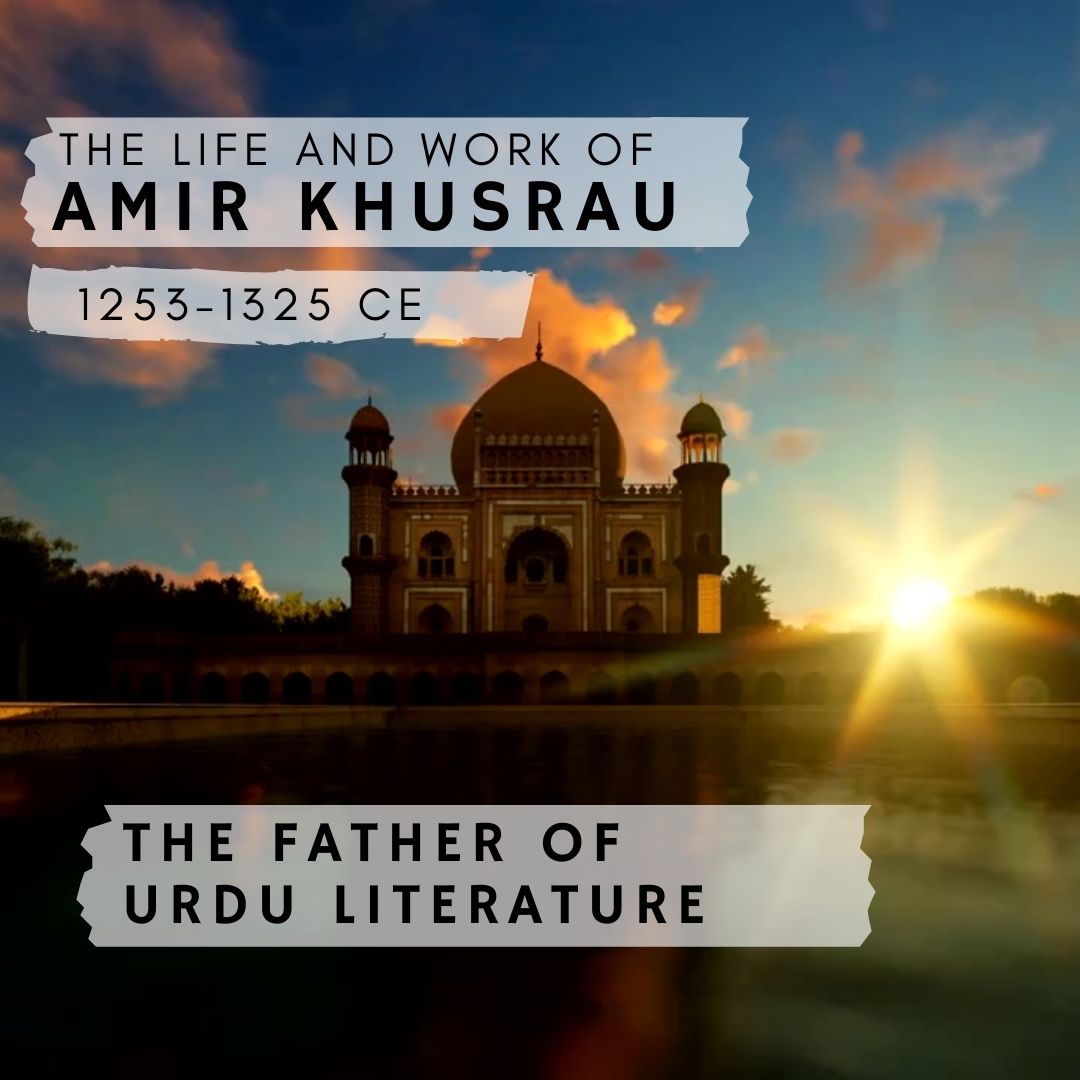
About the Poet
Amir Khusrau was an extraordinary figure from 13th century Delhi who made pivotal contributions to the development of South Asian poetic, linguistic, musical and mystical traditions. He was both a royal chronicler who wrote panegyric poetry and historical epics at the courts of successive rulers, and a devout disciple of Chistī Sufi master Niẓām ud-Dīn Awliyā, dying just six months after him and being buried next to him.
Although he frequented the courts of princes and sultans, he was interested in the circumstances and languages of the common people, and his work shows a love for the city of Delhi and the natural environment and flora and fauna surrounding it. His poetry experiments with combining the living poetic heritage of the Islamic world, which he was very well versed in, with the courtly and folk traditions of the land of his birth which lay within the Sultanate of Delhi. In this way he acted as a sort of cultural bridge, an iconic embodiment of the hugely creative cultural fusion emerging from the bringing together of the artistic heritage of South Asia and that of the Muslim world.
We explore the life and work of Amir Khusrau in the on-demand video “Amir Khusrau - the Father of Urdu Literature”, now available in our membership. Become a supporting member and join us on our journey as we explore the poetic traditions of the Muslim world!
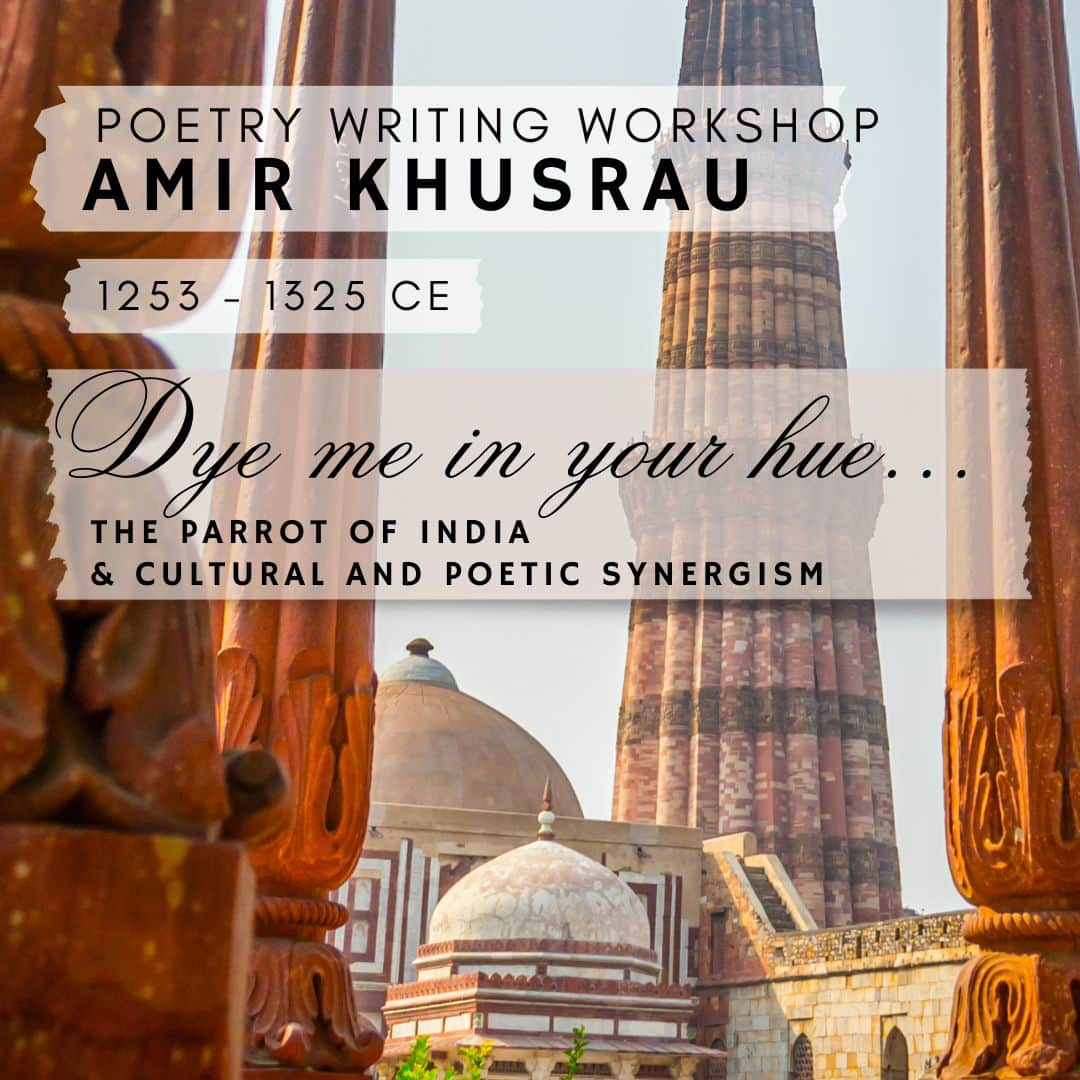
Writing workshop
Born in the Delhi Sultanate in 1253, Amir Khusrau is known as the Father of Urdu Literature and the Father of Qawwali. He is a cultural icon known for his legends, folktales, riddles and witticisms. His prolific poetry brought together the courtly and spiritual poetic traditions of the Muslim world with the cultural milieu of his motherland - this fusion and cultural exchange leading to new creativity and forms of expression. In this workshop we look at some of his work and then consider the possible synergism of combining our own disparate literary heritages and the multiple identities that we often straddle as Muslims in the west to write a piece of poetry representing cultural fusion. Sign up to our membership to access this workshop and more classes and workshops exploring the poetic traditions of the Muslim world..
